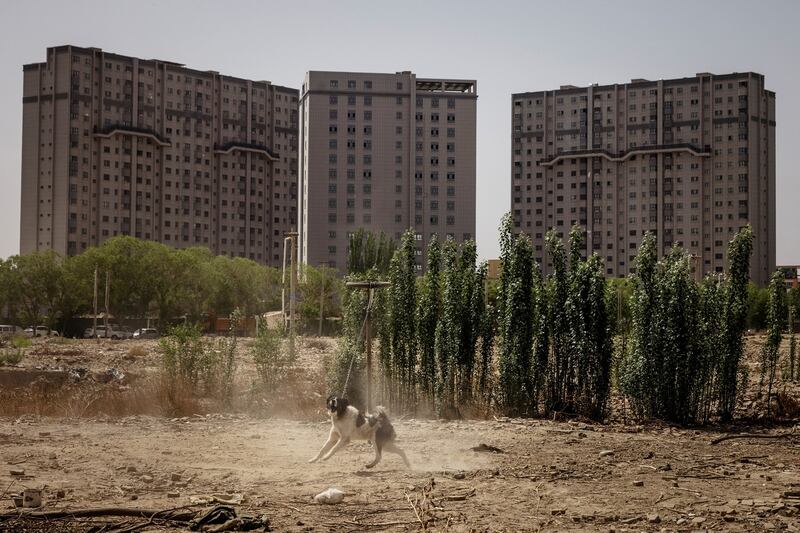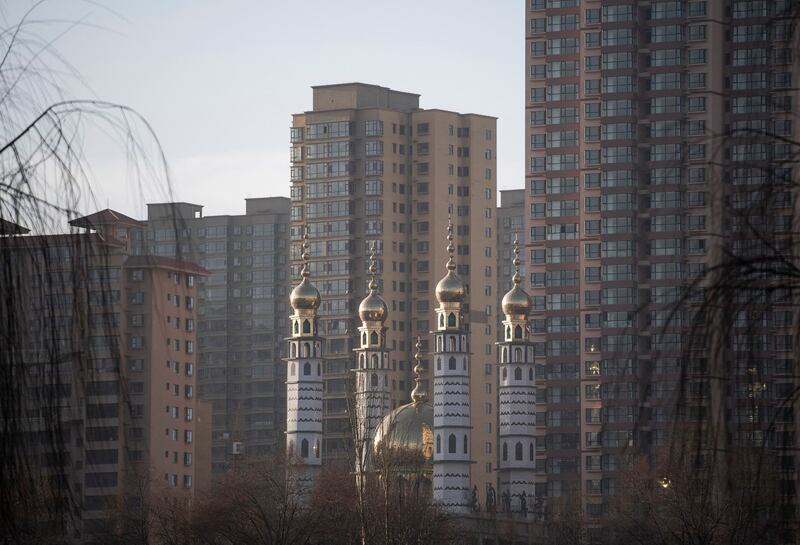Chinese authorities have demolished, closed and converted hundreds of mosques in the northwestern Ningxia region and Gansu province as part of the government’s efforts to restrict Islam, Human Rights Watch said in a report released on Wednesday.
Police have also removed domes, minarets and other Islamic architectural features from other mosques as part of Beijing's "mosque consolidation" policy, the New York-based group said.
“The Chinese government is not ‘consolidating’ mosques as it claims, but closing many down in violation of religious freedom,” said Maya Wang, Human Rights Watch’s acting China director.
“The Chinese government’s closure, destruction, and repurposing of mosques is part of a systematic effort to curb the practice of Islam in China,” she said.
Under President Xi Jinping, authorities in 2017 began efforts to "sinicize" religion in a nationwide crackdown on Muslim, Christian and Tibetan Buddhist religious activities and venues.
The atheist Chinese Communist Party regards religious beliefs as a dangerous foreign import that could destabilize the regime, and deploys an army of "religious affairs" officials to micromanage and suppress faith organizations around the country. The overall aim is to redirect loyalty toward the party.

According to Human Rights Watch, "mosque consolidation" is referenced in an April 2018 party document that instructs party and state agencies to "strengthen the standardized management of the construction, renovation and expansion of Islamic religious venues" across the country.
A central principle is that “there should not be newly built Islamic venues” so that the overall number of mosques is reduced, the document states.
One-third of Ningxia’s mosques closed
Ningxia and Gansu provinces have the highest Muslim populations in China after the Xinjiang region, where ethnic Uyghurs have faced repression and severe rights abuses.
Since 2017, Chinese authorities in Xinjiang have damaged or destroyed two-thirds of the region's mosques, according to the Australian Strategic Policy Institute.
Because official documents don’t give precise details, Human Rights Watch couldn’t determine the number of mosques shuttered or repurposed in Ningxia and Gansu.
But the group cited a forthcoming research report by two scholars on Hui Muslims, Hannah Theaker and David Stroup, who have estimated that one-third of Ningxia’s mosques have been closed since 2020.

Human Rights Watch also looked at satellite imagery and analyzed videos and pictures published online by Hui Muslims to examine the implementation of China’s policy in two villages in Ningxia.
“Of these villages’ seven mosques, four had significant destruction: three main buildings had been razed and the ablution hall of one was damaged inside,” the group said. “The authorities have removed the domes and minarets of all seven mosques.”
Radio Free Asia reported in 2021 that between 400 and 500 mosques faced closure in Ningxia, which had 4,203 mosques as of 2014.
In Gansu, Human Rights Watch cited four instances of local authorities implementing the consolidation policy in 2020, including in Linxia Hui Autonomous Prefecture, where authorities reduced and combined 10 mosques and altered the Islamic architectural features of 31 mosques.
A Chinese government spokesperson told The Guardian newspaper in response to the report that "people of all ethnic groups in China are fully entitled to the freedom of religious belief as prescribed by law."
“We are resolute in rejecting and fighting religious extremism,” the spokesperson said. “Believers’ normal religious activities are guaranteed in accordance with law and their customs respected.”
Edited by Malcolm Foster.
